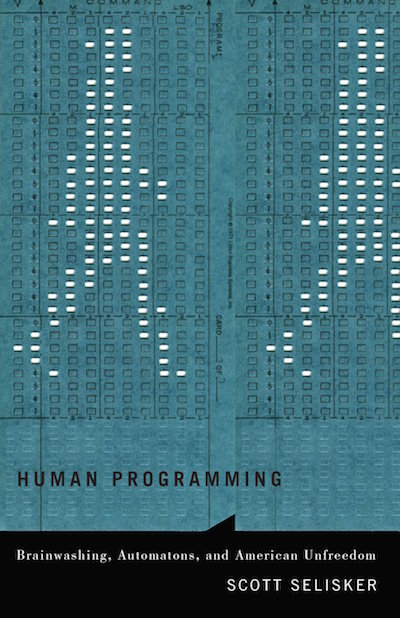Recent Writing
- “A Plain Text Workflow for Academic Writing with Atom”, updated blog post
- Review of Happiness by Design: Modernism and Media in the Eames Era, by Justus Nieland, in American Literary History Online Review
- “Behaviorism in Literary Culture” in the Palgrave Handbook of Twentieth and Twenty-First Century Literature and Science
- Review of Neo-Passing: Performing Identity after Jim Crow edited by Mollie Godfrey and Vershawn Ashanti Young, in African American Review
- “Automation and Creativity”, in Jennifer S. Rhee, ed. Forum on Automation, ASAP/Journal
- “It Me”, review of Merve Emre’s The Personality Brokers, Los Angeles Review of Books

Welcome. I teach U.S. literature, science and technology studies, and digital humanities at the University of Arizona. My research examines the roles of science and technology in post-1945 U.S. literature and culture.
Selected Publications
“The Novel and WikiLeaks: Transparency and the Social Life of Privacy,” in American Literary History, 2018
“Social Networks,” in Rachel Greenwald Smith, ed., American Literature in Transition, 2000-2010 (Cambridge, 2017)
“Digital Humanities Knowledge: Reflections on the Introductory Graduate Syllabus,” in Matthew K. Gold and Lauren Klein, eds., Debates in the Digital Humanities 2016 (Minnesota, 2016)
“The Bechdel Test and the Social Form of Character Networks” New Literary History, 2015 (Ralph Cohen Prize)
”‘Stutter-Stop Flash-Bulb Strange’: GMOs and the Aesthetics of Scale in Paolo Bacigalupi’s The Windup Girl,” Science Fiction Studies, 2015 (SFRA Pioneer Award)
“The Topos of the Cult in David Mitchell’s Global Novels,” Novel, 2014
“Simply by Reacting?: The Sociology of Race and Invisible Man’s Automata,” American Literature, 2010 (Norman Foerster Prize)
Books
Human Programming
My first book, Human Programming: Brainwashing, Automatons, and American Unfreedom, was published by the University of Minnesota Press in August 2016. It examines how metaphors for ideology have circulated between scientific, literary, cinematic, and political culture in the U.S., from World War II to the War on Terror. The book shows how novelists and filmmakers have used the figure of the “human automaton” as a means of exploring the meanings of democracy, totalitarianism, and fundamentalism.
I talked about Human Programming for exactly 90 seconds on WAMC Public Radio’s Academic Minute and for about an hour with Carl Nellis of the New Books Network. The Los Angeles Review of Books ran a review, “No Mind to Lose: On Brainwashing.” The book was a finalist for the 2017 Society for Literature, Science, and the Arts Kendrick Memorial Book Prize, and it received an honorable mention for UC Riverside’s 2017 Science Fiction and Technoculture Studies Program Book Prize.
Social Medium
I’m currently completing a second book, tentatively titled “Social Medium: Networks and Power in the Novel.” It describes the character network, the web of connections between characters and groups, as a key formal feature of fictional narrative. While this formal feature has many uses in narrative across periods and genres, I describe how twentieth-century and contemporary literary fiction uses character networks to explore social and institutional power. Across many themes—including corruption, collective action, identity and community, creativity and appropriation, surveillance and privacy—authors use groups of characters to flesh out and rehearse different forms and exercises of power. The book’s first part develops theories of networked agency (illustrated by hard-boiled detective fictions of the 1930s), of networked identity and community (illustrated by passing and native informant narratives), and digital humanities methods for reading character networks.
The book’s second part focuses on U.S literary fiction since the 1990s, which responds with keen self-awareness to contemporary assumptions about how power inheres in social networks. It describes novelistic thinking about media technologies (in a chapter on surveillance and privacy), business networking (in a chapter on cultural appropriation), and political networks (in a chapter on the ideal of the grassroots collective). Borrowing from qualitative sociological work in network analysis, “Social Medium” explores how the shape of a social world, fictional or otherwise, might constrain and enable self-expression, cooperation, and action.
I’ve published two articles from the book in progress. The first, “The Bechdel Test and the Social Form of Character Networks” claims that Alison Bechdel’s popular feminist test for films offers the beginnings of a theory of community in fictional narrative. The second, “The Novel and WikiLeaks: Transparency and the Social Life of Privacy,” describes fiction’s model of privacy not as an aspect of individual interiority, but rather as the power to manage information among different groups of people. I’ve delivered papers from the project on native informants in Zadie Smith’s and E.M. Forster’s novels, on segregated networks in Nella Larsen’s Passing (1929), and on grassroots collectives in Karen Tei Yamashita’s I Hotel (2010).
Contact
Scott Selisker494 Modern Languages
1423 E University Blvd
P.O. Box 210067
Tucson, AZ 85721
selisker@arizona.edu
@sselisker on Twitter



















